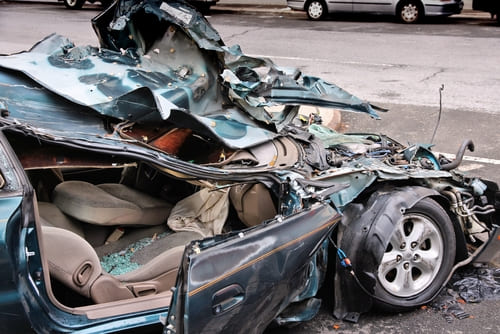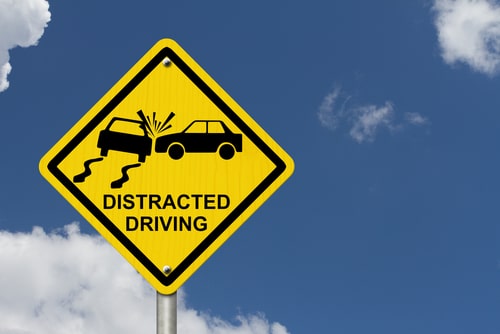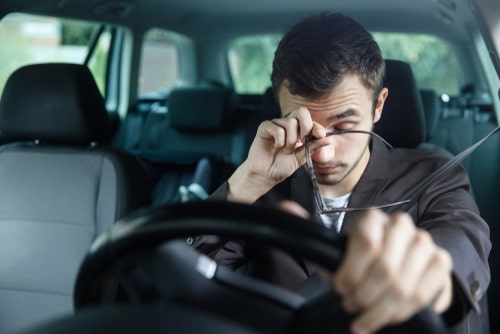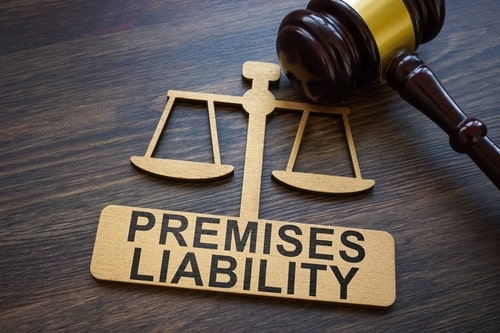Recent Blog Posts
Can I Sue After a Hit-and-Run in Illinois?
 Hit-and-run car accidents are some of the most challenging types of vehicle accidents to deal with. After a hit-and-run accident, you may want to attempt to file a claim for compensation and hold the other driver accountable, but this is difficult when you cannot identify the other driver. Fortunately, there are still ways that Illinois law allows those involved in a hit-and-run car accident to recover compensation.
Hit-and-run car accidents are some of the most challenging types of vehicle accidents to deal with. After a hit-and-run accident, you may want to attempt to file a claim for compensation and hold the other driver accountable, but this is difficult when you cannot identify the other driver. Fortunately, there are still ways that Illinois law allows those involved in a hit-and-run car accident to recover compensation.
An experienced Illinois hit-and-run accident attorney can help you navigate Illinois laws if you wish to pursue a lawsuit.
Common Causes of a Hit-and-Run Accident
Hit-and-run accidents occur when one driver who is involved in or at fault for a vehicle accident decides to flee the scene. This is especially common if an accident happens along a major highway, such as I-294, I-90, I-190, or I-94.
What Are Common Causes of a Slip and Fall Accident?
 Slip and fall accidents are exactly what they sound like – they occur when someone slips over a hazardous or improperly maintained area and falls, often resulting in serious injuries to the neck, head, and back. Suppose you have been injured after a slip and fall accident. In that case, you may be able to pursue a compensation claim to recover the cost of your injuries and additional damages, like pain and suffering. An Illinois premises liability lawyer can help you understand your options.
Slip and fall accidents are exactly what they sound like – they occur when someone slips over a hazardous or improperly maintained area and falls, often resulting in serious injuries to the neck, head, and back. Suppose you have been injured after a slip and fall accident. In that case, you may be able to pursue a compensation claim to recover the cost of your injuries and additional damages, like pain and suffering. An Illinois premises liability lawyer can help you understand your options.
Causes of a Slip and Fall Accident
Slip and fall accidents can occur virtually anywhere, including apartment complexes, stores, restaurants and bars, sports venues and entertainment arenas, and public roads or sidewalks. There are many reasons a slip and fall accident may occur in any of these areas, though some are more common than others, such as the following:
Can an Illinois Fatal Car Accident Be a Wrongful Death Case?
 When your loved one is involved in a fatal car accident, the emotional trauma and loss of a family member can be overwhelming. Expenses related to your loved one’s passing can begin to add up, and you may be wondering if you can pursue a wrongful death case against the driver suspected to be at fault for the fatal car accident.
When your loved one is involved in a fatal car accident, the emotional trauma and loss of a family member can be overwhelming. Expenses related to your loved one’s passing can begin to add up, and you may be wondering if you can pursue a wrongful death case against the driver suspected to be at fault for the fatal car accident.
In many cases, the family of the victim involved in a fatal car accident may be able to seek compensation. A skilled Illinois wrongful death attorney can help you understand your options and guide you through this process.
The Illinois Wrongful Death Act
After a fatal car accident, the Illinois Wrongful Death Act gives the family of victims options for pursuing compensation and taking the responsible driver to court. This act typically applies in a case where the car accident was caused by a driver who was acting recklessly or with negligence, causing the accident that resulted in fatality to the victim.
When is a Rear-End Car Accident Serious?
 Rear-end car accidents are common, and this type of accident can range from mild to very serious. How damaging a rear-end car accident is depends primarily on the speed and size of the vehicles, along with a few other factors. Sometimes, victims of rear-end accidents have the potential to suffer life-changing injuries through no fault of their own. In these cases, you may need the assistance of an Illinois rear-end car accident attorney to help you pursue a claim in court.
Rear-end car accidents are common, and this type of accident can range from mild to very serious. How damaging a rear-end car accident is depends primarily on the speed and size of the vehicles, along with a few other factors. Sometimes, victims of rear-end accidents have the potential to suffer life-changing injuries through no fault of their own. In these cases, you may need the assistance of an Illinois rear-end car accident attorney to help you pursue a claim in court.
Severe Injuries Sustained in Rear-End Accidents
This type of accident occurs frequently, with 29 percent of car accidents involving some kind of rear-end collision. Rear-end car accidents occur at a range of speeds, and this results in a wide variety of injuries.
Severe injuries that can be sustained in a rear-end accident include:
Why Are Truck Accident Cases So Complex?
 Truck accidents can be catastrophic because of the size and weight of the vehicles involved. Truck accidents often result in serious damage to vehicles, severe injuries to victims, and the potential for fatalities. There are many different factors in play when it comes to dealing with a truck accident claim, and insurance companies or the truck company itself often make it hard to receive the compensation you deserve after such an accident.
Truck accidents can be catastrophic because of the size and weight of the vehicles involved. Truck accidents often result in serious damage to vehicles, severe injuries to victims, and the potential for fatalities. There are many different factors in play when it comes to dealing with a truck accident claim, and insurance companies or the truck company itself often make it hard to receive the compensation you deserve after such an accident.
An experienced Illinois truck accident attorney can help advocate for you and guide you through the complex process of pursuing a claim after a truck accident.
Factors That Cause Truck Accidents
Truck accidents occur for a variety of reasons, and the Federal Motor Carrier Safety Administration has regulations and steps in place to try and minimize the number of truck accidents that occur throughout the United States as much as possible.
Who is at Fault for a Pedestrian Accident?
 Many individuals act as pedestrians throughout the day, and both pedestrians and individuals operating cars or other vehicles have a duty to be aware of each other. Following a few simple tips can help prevent a pedestrian accident while you are driving and ensure that every individual reaches their destination safely.
Many individuals act as pedestrians throughout the day, and both pedestrians and individuals operating cars or other vehicles have a duty to be aware of each other. Following a few simple tips can help prevent a pedestrian accident while you are driving and ensure that every individual reaches their destination safely.
If you have been injured in a pedestrian accident due to a motorist’s lack of care, you should contact an Illinois pedestrian accident attorney to explore your legal options.
Keeping an Eye Out for Danger
Both pedestrians and motorists should keep in mind the potential for danger and accidents while out and about. By being focused on driving as a motorist or by their surroundings as a pedestrian, individuals can more easily react and work to prevent accidents.
Is Distracted Driving Illegal in Illinois?
 Distracted driving is dangerous, and engaging in distracted driving can result in serious motor vehicle accidents. It is also possible to be injured by a distracted driver while walking across a street or driving your own motor vehicle. Some forms of distracted driving are illegal in Illinois. If you have been injured in a distracted driving accident, you may need to contact an experienced Illinois distracted driving attorney to explore compensation options.
Distracted driving is dangerous, and engaging in distracted driving can result in serious motor vehicle accidents. It is also possible to be injured by a distracted driver while walking across a street or driving your own motor vehicle. Some forms of distracted driving are illegal in Illinois. If you have been injured in a distracted driving accident, you may need to contact an experienced Illinois distracted driving attorney to explore compensation options.
What Is Distracted Driving?
Distracted driving is driving while texting, talking on the phone, or engaging in any other activity that takes your full attention off the road. A lesser-known type of distracted driving includes drowsy driving, which is driving while fatigued. Drowsy driving lowers your reaction times and awareness of your surroundings, which can create severe issues and accidents.
How Dangerous Is Drowsy Driving?
 Many individuals may not realize it, but driving drowsy is a form of distracted driving, and engaging in drowsy driving increases your risk of an accident. Drowsy driving or driving while fatigued results in slower reaction times and less awareness, which you never want while operating a motor vehicle. If a drowsy driver was involved in a car accident where you were injured, you may be able to seek compensation with the help of an Illinois car accident attorney.
Many individuals may not realize it, but driving drowsy is a form of distracted driving, and engaging in drowsy driving increases your risk of an accident. Drowsy driving or driving while fatigued results in slower reaction times and less awareness, which you never want while operating a motor vehicle. If a drowsy driver was involved in a car accident where you were injured, you may be able to seek compensation with the help of an Illinois car accident attorney.
Is Drowsy Driving Distracted Driving?
According to the National Highway Traffic Safety Administration, drowsy driving caused more than 650 deaths in 2021. More than 50,000 people were reported injured in a car accident caused by drowsing driving in 2017. Drowsy driving is a form of distracted driving, as fatigue distracts drivers from being totally aware and alert while operating their motor vehicle.
What Is Premises Liability in Illinois?
 Understanding premises liability in Illinois can be confusing, but it is important to have a sense of this law in case you are injured on someone else's property. If you have been injured on a property outside of your home, you may be wondering who is responsible and if you are able to seek compensation. An Illinois premises liability lawyer can help you answer these questions and pursue the compensation you deserve.
Understanding premises liability in Illinois can be confusing, but it is important to have a sense of this law in case you are injured on someone else's property. If you have been injured on a property outside of your home, you may be wondering who is responsible and if you are able to seek compensation. An Illinois premises liability lawyer can help you answer these questions and pursue the compensation you deserve.
What Is Premises Liability in Illinois?
Premises liability law in Illinois is governed by the Illinois Premises Liability Act. This act states that individuals who own or live on property in the state have a duty to ensure that their property is safe for visitors. This law applies to both commercial businesses and residential properties. While this law does not cover trespassers onto property in Illinois, lawful visitors to a property are protected.
Is It Ever Safe to Text and Drive?
 Texting while driving is one of the most common forms of distracted driving. Many individuals engage in texting while driving from time to time, though the consequences of this negligence while driving can be severe. If you have been in a car accident caused by a distracted driver, contact an Illinois car accident lawyer to help you pursue the compensation you deserve.
Texting while driving is one of the most common forms of distracted driving. Many individuals engage in texting while driving from time to time, though the consequences of this negligence while driving can be severe. If you have been in a car accident caused by a distracted driver, contact an Illinois car accident lawyer to help you pursue the compensation you deserve.
The Consequences of Distracted Driving
Distracted driving brings risks, primarily the risk of causing an accident or being involved in an accident while driving. Statistics show that driver use of handheld devices is on the rise, indicating a higher risk of encountering a distracted driver on the road.
Even if you are paying the utmost attention to the road in front of you, a distracted driver or someone using a phone while driving may make a mistake out of negligence and cause a car accident. Significant or catastrophic injuries can be caused in an accident like this, and there is a risk of fatality. These consequences may be life-changing, and they may affect your life for years after an accident has occurred.
 847-232-7180
847-232-7180






